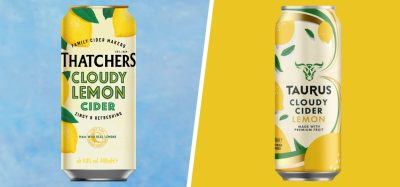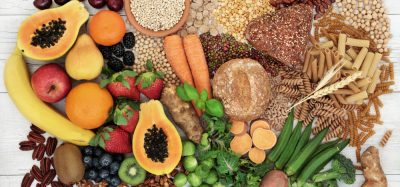Prenatal vitamin E supplementation may lower peanut allergy risk in newborns
- Like
- Digg
- Del
- Tumblr
- VKontakte
- Buffer
- Love This
- Odnoklassniki
- Meneame
- Blogger
- Amazon
- Yahoo Mail
- Gmail
- AOL
- Newsvine
- HackerNews
- Evernote
- MySpace
- Mail.ru
- Viadeo
- Line
- Comments
- Yummly
- SMS
- Viber
- Telegram
- Subscribe
- Skype
- Facebook Messenger
- Kakao
- LiveJournal
- Yammer
- Edgar
- Fintel
- Mix
- Instapaper
- Copy Link
Posted: 19 February 2025 | Ben Cornwell | No comments yet
Prenatal vitamin E supplementation may reduce newborn food allergy risk, offering potential for early intervention strategies.


A new study has raised hopes for reducing the alarming rise in childhood food allergies, after researchers found that supplementing maternal diets with a form of vitamin E during pregnancy and nursing could protect newborns against allergic reactions.
The research, published in The Journal of Immunology, revealed that mouse pups born to mothers given α-tocopherol, a form of vitamin E, exhibited significantly reduced development of food allergies and peanut-induced anaphylaxis.
This finding could influence future nutritional guidance and prenatal supplement formulations, particularly as food allergy rates in children have surged by 50 percent between 2007 and 2021 in the United States. Currently, approximately 33 million Americans live with at least one food allergy, with peanuts being among the most common allergens.
Does maternal diet influence early immune development?
Led by Dr Joan Cook-Mills, Professor of Microbiology and Immunology at Indiana University School of Medicine, the study focused on how maternal diet influences early immune development. Researchers fed pregnant and nursing mice a diet enriched with α-tocopherol, then exposed their offspring to allergens through skin contact with food proteins, household dust and detergents – conditions designed to mirror real-life triggers for infants predisposed to allergies. After 2.5 weeks, the pups were given the allergens orally to measure their immune response.
The results were striking: pups from α-tocopherol-supplemented mothers had fewer IgE antibodies, a key marker for allergic reactions, and were less likely to suffer from anaphylaxis upon peanut exposure. This was directly linked to increased α-tocopherol levels transferred from mother to pup during gestation and lactation.
“The potential of α-tocopherol to reduce allergic reactions in children will likely be dampened by high levels of γ-tocopherol due to its prevalence in common cooking oils (soybean oil, corn oil, and canola oil) and supplements in the US,” said Dr Cook-Mills. She has previously demonstrated that γ-tocopherol counteracts the benefits of α-tocopherol.
Dietary imbalance
This dietary imbalance poses a challenge in the US, where vegetable oils dominate. In contrast, European diets, which favour sunflower, safflower, and olive oils – rich in α-tocopherol but low in γ-tocopherol – may offer more immediate potential. “Currently, α-tocopherol supplementation may have a greater benefit in European countries,” suggested Dr Cook-Mills.
With early peanut introduction now advised to reduce allergy development, some infants still test positive before solids are introduced, underscoring the need for preventative interventions. “The benefit of these research findings is limited in the US unless an individual changes their cooking habits, but moreover unless commercial production practices change,” emphasised Dr Cook-Mills.
The research team aims to collaborate with food manufacturers to recalibrate tocopherol levels in everyday oils and products.
As the prevalence of food allergies continues to rise, with countries like the United Kingdom reporting that 7.1 percent of breast-fed infants develop food allergies — 1 in 40 of whom develop peanut allergies — this research offers a potential pathway to mitigate newborn allergy development through targeted nutritional interventions during pregnancy and lactation.








